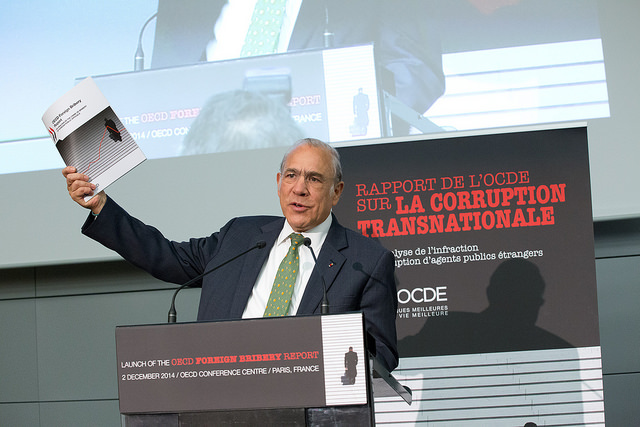While measures such as the Corruption Perception Index show that corruption is often associated with poor countries, the report, published by the OECD, found that one in five foreign bribery cases involved a recipient from a country ranked Very High on the UN Human Development Index. Over half of bribes were paid or authorized by CEOs or corporate management. Three out of four bribery schemes went through an intermediary, such as an agent or a shell company.
 The report compiles data from 17 countries that have successfully punished people or companies for bribing a foreign official.
The report compiles data from 17 countries that have successfully punished people or companies for bribing a foreign official.
Gaining public contracts was the reason for most bribes, and accounted for 57 percent of cases, followed by avoiding customs procedures in 12 percent of cases. The leading industries for bribery cases were extraction (19 percent), construction (15 percent), and transportation/storage (15 percent).
The OECD is an intergovernmental organization with 34 members, including many of the world’s largest economies. Their report only studied cases where laws against bribery were actually enforced, and does not necessarily shed light on cases where those who give and take bribes manage to get away with their crimes.
“From the local to the global scale, bribery is by its very nature complex and hidden,” said Angel Gurría, OECD Secretary-General, at the report launch. “But, with tools like this report we are no longer fighting in the dark in our attempts to eradicate corruption.”





